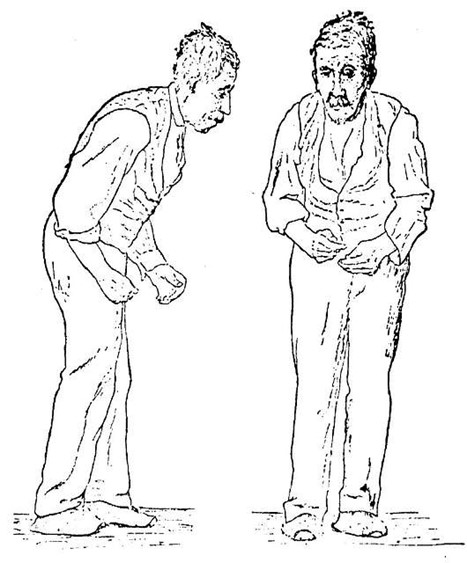Beyond Blood Cancers: The Future Potential of CAR-T Cell Therapy in Oncology
Chimeric Antigen Receptor T-cell (CAR-T) therapy has revolutionized the treatment of certain blood cancers, such as leukemia and lymphoma. This innovative approach reprograms a patient’s T-cells to recognize and destroy cancer cells with remarkable precision. While CAR-T therapy’s success in hematologic malignancies is groundbreaking, the future potential of this therapy in solid tumors and other cancers is the next frontier in oncology.
The Breakthrough in Blood Cancers
CAR-T cell therapy involves extracting T-cells from a patient, genetically modifying them to express a receptor (CAR) that targets cancer cells and infusing the modified cells back into the patient. This personalized form of immunotherapy has led to durable remissions in patients with advanced, treatment-resistant blood cancers. For example, CAR-T therapy has achieved significant success in treating relapsed or refractory B-cell lymphomas and acute lymphoblastic leukemia (ALL), even in cases where traditional therapies have failed.
However, blood cancers represent only a small portion of the overall cancer burden. With many patients facing solid tumors like:
- lung
- breast
- colon
cancers, expanding CAR-T’s reach beyond hematologic malignancies is crucial.
Challenges in Solid Tumors
The application of CAR-T cell therapy in solid tumors is still in its infancy due to several challenges:
- Tumor Microenvironment (TME): Solid tumors are surrounded by a hostile environment that suppresses immune responses. Factors like:
- immunosuppressive cells
- low oxygen levels
- physical barriers
within the tumor microenvironment can impede CAR-T cells from effectively attacking cancer cells.
- Antigen Selection: While blood cancers express unique antigens (such as CD19 in B-cell cancers), solid tumors often lack such specific markers, increasing the risk of off-target effects. This makes finding a suitable target more challenging, as it’s essential to avoid harming healthy tissues.
- Persistence and Trafficking: CAR-T cells in solid tumors face difficulties in trafficking to the tumor site and surviving long enough to mount an effective attack. The hostile tumor environment and factors like inadequate nutrient supply can limit the persistence of these engineered cells.
Strategies to Overcome Barriers
Research is focusing on overcoming these hurdles to extend the benefits of CAR-T therapy to solid tumors:
- Armoring CAR-T Cells: Scientists are working on modifying CAR-T cells to resist the suppressive effects of the TME. These “armored” CAR-T cells may be enhanced with cytokines, making them more potent in hostile environments.
- Dual Targeting: To improve specificity and reduce off-target effects, researchers are developing CAR-T cells that target multiple antigens simultaneously. This multi-antigen approach can help improve tumor specificity while minimizing the risk of damaging healthy cells.
- Checkpoint Inhibitors and CAR-T: Combining CAR-T therapy with checkpoint inhibitors (like PD-1 or CTLA-4 inhibitors) could enhance the immune response. Checkpoint inhibitors help remove the “brakes” that tumors use to evade the immune system, potentially allowing CAR-T cells to work more effectively in solid tumors.
- Localized Delivery: Researchers are exploring methods to deliver CAR-T cells directly to the tumor site, reducing systemic side effects and improving the concentration of CAR-T cells where they are most needed.
CAR-T in Solid Tumors: Early Successes
Despite the challenges, early clinical trials show promise. CAR-T therapy is being investigated in several solid tumors, including:
- Glioblastoma: This aggressive brain cancer has proven resistant to conventional treatments, but CAR-T therapies targeting specific glioblastoma antigens are showing early signs of efficacy in clinical trials.
- Ovarian Cancer: Researchers are testing CAR-T cells that target mesothelin, an antigen overexpressed in ovarian cancer. These trials are in the early stages, but there have been reports of partial responses.
- Pancreatic Cancer: One of the most challenging cancers to treat, pancreatic cancer may also benefit from CAR-T therapy. Early trials are targeting antigens such as Claudin 18.2, with some signs of clinical activity.
The Future of CAR-T in Oncology
The future potential of CAR-T cell therapy goes beyond just expanding its use in solid tumors. There are ongoing efforts to:
- Improve Manufacturing and Accessibility: Current CAR-T therapies are expensive and time-consuming to manufacture. Research into off-the-shelf CAR-T therapies, where universal donor cells can be used for multiple patients, aims to reduce costs and make treatment more accessible.
- Target Other Types of Cancer: CAR-T cells are being explored in multiple myeloma and even non-cancerous conditions like autoimmune diseases. The ability to re-engineer the immune system offers new possibilities in treating diseases where current therapies fall short.
To learn more, check out this summary from Harvard Health Publishing.
CAR-T cell therapy has already transformed the treatment landscape for certain blood cancers. However, its potential is far from fully realized. As research continues to overcome the barriers of solid tumors and expand its applicability, CAR-T therapy may become a cornerstone of cancer treatment across a broader spectrum of malignancies. The future of oncology is bright, and CAR-T cell therapy is at the forefront of this new era in personalized medicine.
Discover the transformative potential of the Screening Test offered by the Asher Longevity Institute, designed to enhance your well-being and empower you in safeguarding against age-related ailments. Elevate your health and optimize treatment outcomes through this cutting-edge approach.




